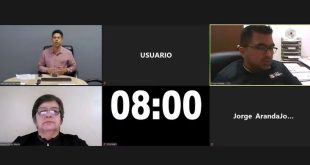A federal bipartisan legislation would allow news organizations to jointly negotiate fair compensation for access to their content by Google, Facebook, and other dominant platforms.
U.S. Senators Amy Klobuchar (D-MN), Chairwoman of the Senate Judiciary Subcommittee on Competition Policy, Antitrust and Consumer Rights, and John Kennedy (R-LA) reintroduced the Journalism Competition and Preservation Act, their bipartisan legislation to address dominant online platforms’ power over news organizations. During the last Congress, the Journalism Competition and Preservation Act passed the Senate Judiciary Committee by a strong bipartisan vote of 15-7.
“As the daughter of a newspaperman, I understand firsthand the vital role that a free press plays in strengthening our democracy. But local news is facing an existential crisis, from ad revenues plummeting and newsrooms across the country closing to artificial intelligence tools taking content. To preserve strong, independent journalism, news organizations must be able to negotiate on a level playing field with the online platforms that dominate news distribution and digital advertising,” said Klobuchar. “Our bipartisan legislation ensures that media outlets can band together and negotiate for fair compensation from the Big Tech companies that profit from their news content, allowing journalists to continue their critical work.”
This bill sets out a process through which certain broadcast or digital news providers may collectively negotiate with covered online platforms (e.g., social media companies) regarding the use of the news providers’ content by the platforms.
Specifically, the bill authorizes an eligible provider (e.g., one with no more than 1,500 full-time employees and nonnetwork news broadcasters that engage in specified news practices) to jointly form an entity with other eligible providers to negotiate the pricing, terms, and conditions by which certain online platforms use the providers’ content. A covered platform is generally one that has at least 50 million monthly domestic users and is owned or controlled by a person with either sales or a market capitalization that exceeds a specified amount or at least one billion monthly users worldwide.
The bill establishes requirements concerning the formation, governance, operation, and termination of the joint negotiation entity. It also exempts from antitrust laws certain actions by a joint negotiation entity (e.g., providers jointly denying a platform’s access to the providers’ content).
The bill outlines requirements governing the conduct of the negotiations by, for example, requiring the parties to negotiate in good faith. Additionally, the bill provides for private rights of action if the requirements for negotiation are not met and establishes requirements for arbitration in limited circumstances.
In addition, the Journalism Competition and Preservation Act would:
Enable non-broadcast news publishers to demand final-offer arbitration if their joint negotiation with a covered platform fails to result in an agreement after six months.
Create a limited safe harbor from federal and state antitrust laws for eligible digital journalism providers that allows them to participate in joint negotiations and arbitration and, as part of those negotiations, to jointly withhold their content from a covered platform.
Prohibit discrimination by a joint negotiation entity or a covered platform against an eligible digital journalism provider based on its size or the views expressed in its content and provide a private right of action for violations of this prohibition.
Prohibit retaliation by a covered platform against eligible digital journalism providers for participating in joint negotiations or arbitration and provide a private right of action for violations of this prohibition.
The Government Accountability Office must study the impact of the joint negotiations, including their effects on local and regional news and the employment of journalists.
In general, the bill’s provisions terminate six years after its enactment.






